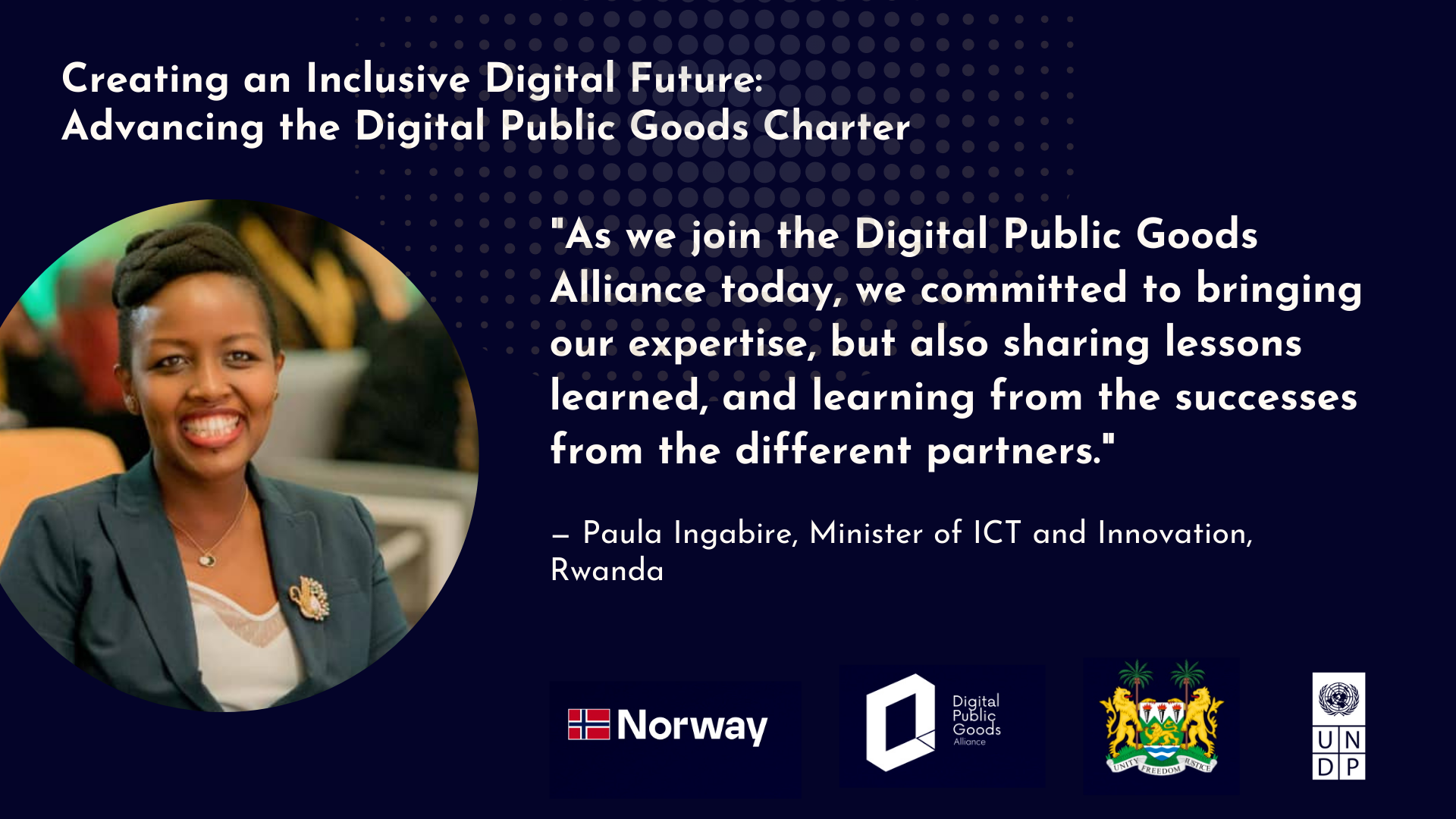Rwanda Ministry of ICT and Innovation joins the DPGA

On 1 June 2022, high-level representatives from governments, the philanthropic sector, and international organisations came together to express their commitments to increased collaboration on digital development and digital public goods. At the event, Bangladesh, India, Rwanda, Uganda, and the United States Agency for International Development (USAID) announced their membership in the Digital Public Goods Alliance (DPGA). The new perspectives, technologies, and knowledge these stakeholders bring will significantly advance the reach and impact of the DPGA.
Today, we’re highlighting the efforts already underway in Rwanda, a leader in digital transformation in Africa.
History and commitment
Rwanda has made tremendous progress in building inclusive infrastructure over the last 30+ years, including achieving over 96% 4G coverage. Their overarching goal is to create a seamless delivery of public services and to improve the overall user experience for citizens. Their efforts include a vision to use ICTs to transform the health sector by strengthening interoperability of health information systems and improving health service delivery and accessibility through digital health solutions like the digital public good, DHIS2. By strategically adapting existing open source digital health tools like Rwanda HMIS (DHIS2 with Tracker), Rwanda was able to accelerate their COVID-19 response, offering greater efficiency and more robust support to the government, health workers, clients, and other stakeholders.
Rwanda is also working to digitise services and create an enabling environment for digital payments and financial inclusion, especially through their cashless accelerator program which they use as a lever for improving digital inclusion overall. Rwanda points to multi stakeholder collaborations as critical to this success.
Paula Ingabire, Minister of ICT and Innovation is steadfast that, “Rwanda will continue on this journey of building the foundation for our inclusive and open digital future. For example, we aim to achieve 100% in digital public service delivery. Today we have 300 services that are digital and an intention to digitise the remaining 600 services within the next two years. But that can only be achieved with open source infrastructure that will allow for the majority of our start-up ecosystem, industry, and private sector to mobilise their skills and resources.”
Open data, Open payments
Open government data can help streamline citizen access to government services, help existing businesses, and foster innovation. Rwanda has recently finalised a proof of concept to build an open data portal for citizens which will serve as a vehicle to share non-personally identifiable data and make it accessible to institutions, citizens, researchers, software developers, and more.
Additionally, the Government of Rwanda is working with the digital public good Mojaloop on interoperable payment systems. Their efforts will focus on interoperability and various use cases linked to a cashless economy for Rwandans and will help to create an open digital payment ecosystem through the Mojaloop platform.
Shared perspectives
As a digital pioneer, Rwanda has valuable insight to share based on their experience, including challenges and successes that have contributed to their digital transformation. These factors include a focus on interoperability for key components of digital public infrastructure; the decentralisation of public service delivery; and reusing existing digital public goods, such as Mojaloop. These experiences provide actionable insights, which other countries can adopt to fast-track their digital transformation journeys.

“We are committed to advancing the DPG agenda. And we know that with global collaboration towards building digital ecosystems, this will allow us to reuse open software, data and knowledge.” As members of the DPGA, Rwanda will continue to share learnings as they build an inclusive digital future. To learn more about Rwanda’s activities as a member of the Digital Public Goods Alliance, please visit our Roadmap.